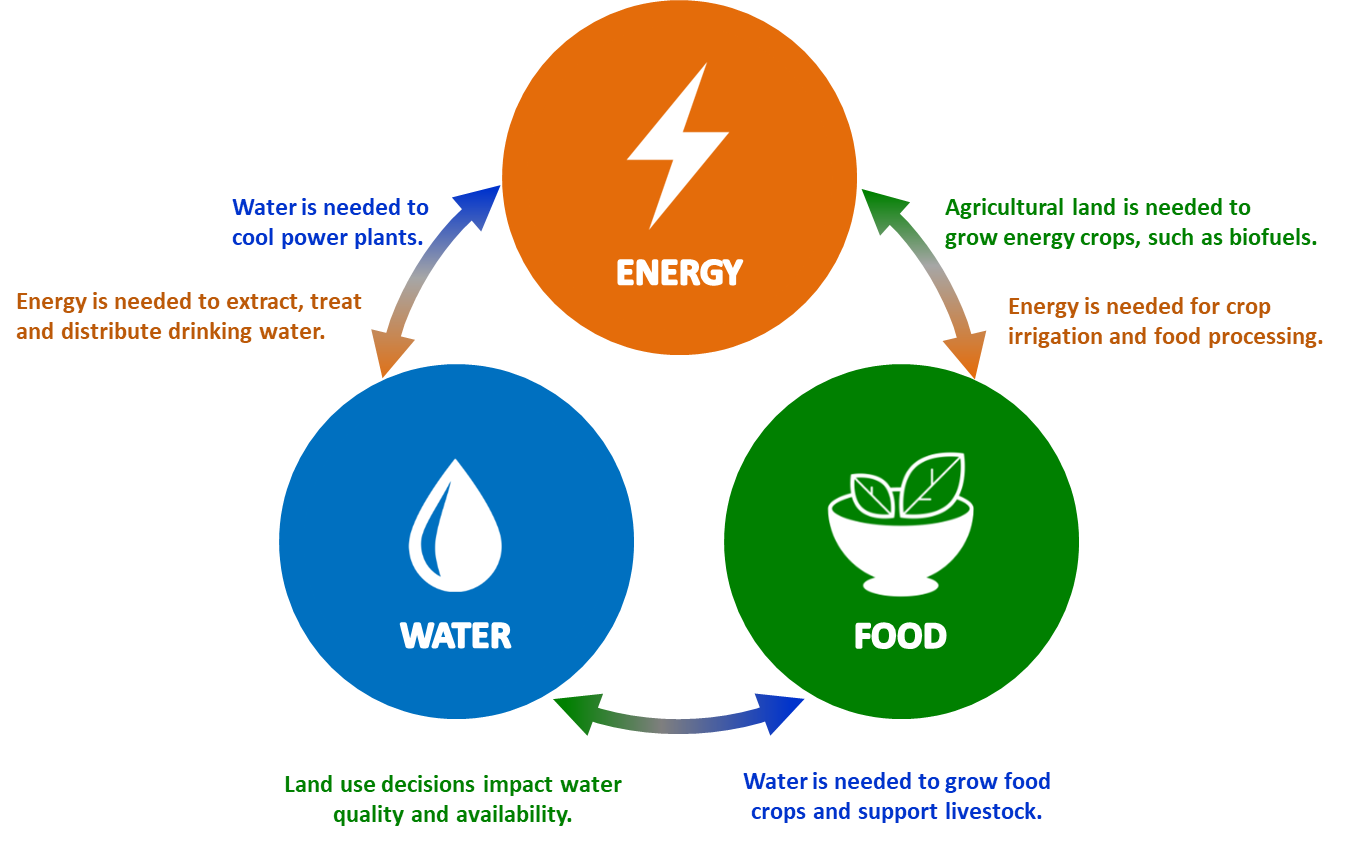Cross-sectoral Issues and Integrated Solutions
Competition for energy, water, and food resources is a grand societal challenge of our time. With global drivers such as population growth, climate change, changing consumption patterns, and urbanization, there are ever increasing demands for reliable energy, clean water, and dependable food resources. These resources are inherently interconnected as land and energy are needed to treat and distribute water, land and water are used to generate energy and grow food and energy crops, energy and water are used for food production, and land use decisions impact land availability for human development and ecosystems as well as the availability and quality of water supplies.

As identified in the Bonn2011 Conference on the Water, Energy and Food Security Nexus, “in our interconnected world, sectoral “silos” are no longer acceptable ways to approach our targets, because solutions based only on one sector or discipline will unavoidably affect other sectors, whether by design or accident. Nowhere are the interconnections more evident—and critical—than in the water, energy and food sectors, because each is not only connected to, but is also dependent on, the others”. To ensure the health and prosperity of future generations it is essential that development is conducted in a manner that considers the energy, water and food sectors holistically. The energy-water-food nexus perspective offers a new paradigm of thinking that breaks down silos between sectors and uses an integrated approach to identify the challenges and opportunities that exist at the nexus of energy, water and food resources.
This section considers how development affects the three sectors of energy, water and food using an integrated perspective that accounts for both direct and indirect impacts as well as synergies. Integrated approaches include policies, tools and techniques that facilitate nexus thinking or problem solving. These resources can be used to inform analysis, planning and solutions development at national, regional, state and local levels.
Integrated approaches are solutions that include all three aspects of the nexus in their assessment and can be broken down into the following key topic areas:
